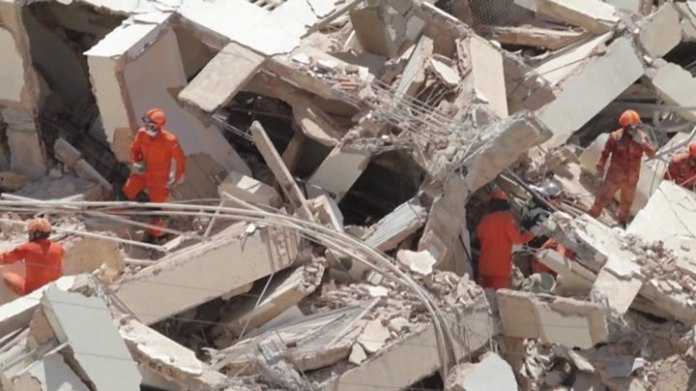
Residents have been advised to vacate structures that are dilapidated to avoid further loss of lives as a result of imminent building collapse.
There is an alarming rate of building collapse across some parts of the country, which has led to the loss of several lives and property.
Speaking in an interview with Sunday PUNCH, the spokesperson for the Nigerian Institute of Building, Godfrey Godfrey, advised residents living in houses with failing structures to look for alternative accommodation.
He also said buildings situated along waterways were often prone to becoming weaker during the rainy season, even as he advised owners to take necessary precautions to avoid unexpected crises.
“The first priority is to save lives of the people, particularly if you see that the properties are something that cannot be savaged. There won’t really be any need for salvaging properties instead of save lives.
“We don’t want it to become an emergency situation where people will now be relocated and then forced out of certain locations. So, it’s often advisable that they are encouraged to look for alternative accommodation particularly for their safety, it’s very important.
“It’s better to go through that huddle now and be safe and alive than delay it and become a victim as a result of the collapse of a building.”
Godfrey added, “Often times, you see that some houses are built on low levelswhere they always have direct contact with moisture and unfortunately, moisture is not a friend of any building except its specially designed to withstand the negative effect of having contact with water.
“We have also seen that often times, particularly during the rainy season like we can find now, the government always advises people to move up to high grounds and leave the low level area, because at times like this during this rainy season, those buildings get heavily saturated with water. It makes the building heavier and it makes the soil weaker thereby not being able to carry the loads.
“When the structure is now heavier and not been able to support itself because ab initio it was poorly built, what you begin to see happening is that there is a faster rate of disintegration of such buildings and dilapidation, which often leads to collapse.
“It’s important that proper attention is paid to such areas and then we rely on advocacy like we are doing now with our friends in the media in order to disseminate such information.”
The NIOB spokesperson also said the high cost of land and construction materials such as cement had continued to impede the availability of affordable houses in the country.
“Because of the economic situation in Nigeria now, it’s difficult to see affordable houses because the land is expensive, the building materials are expensive, particularly those that are imported.
“Even those manufactured locally, the replacement parts used for the equipment are also imported,” Godfrey said.




